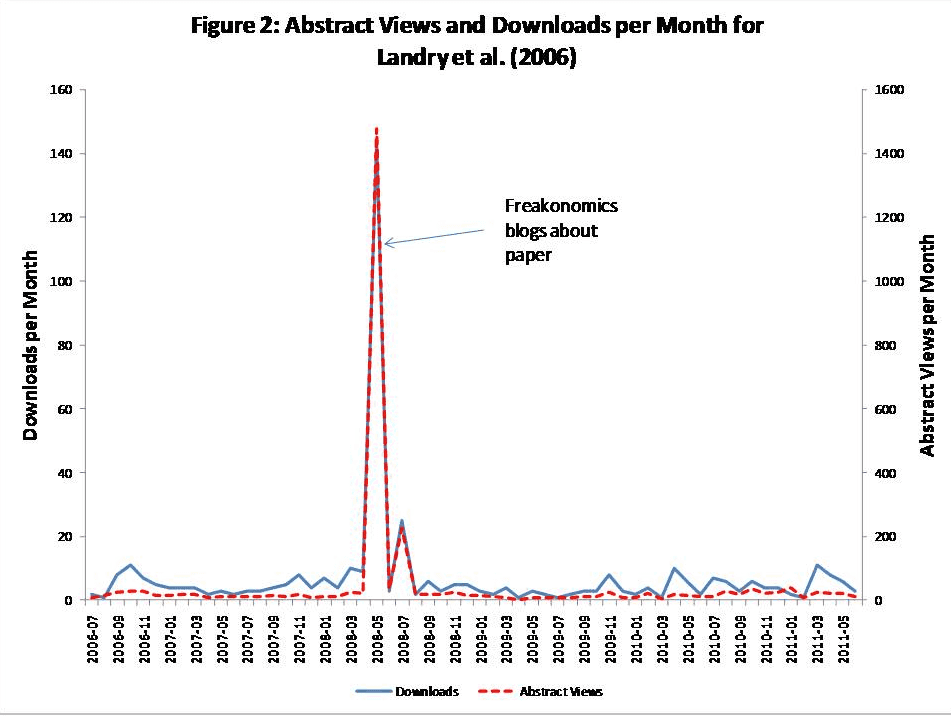
The Economics of Economics Blogs
Posted: August 15, 2011
The Gist: If you are a professor, the takeaway is that you want to have a department blog that you contribute to unless you are a prolific publisher with a horde of minions to do your bidding.
If you are a consumer of economic literature, you are not alone. Here is a list of econ blogs to start you off (google it).
Development Impact
Freakonomics.com
Chris Blattman
NYT’s Economix
Marginal Revolution
Paul Krugman
The Statistic: Blogging about a paper causes a large increase in the number of abstract views and downloads in the same month: an average impact of an extra 70-95 abstract views in the case of Aid Watch and Blattman, 135 for Economix, 300 for Mararginal Revolution, and 450-470 for Freakonomics and Krugman.
The Article: The Economics of Economics Blogs:
Last week, the World Bank blog Development Impact wrote about the influence of economics blogs on downloads of research papers. It included Freakonomics.com, as well as 5 other blogs — Aid Watch, Chris Blattman, NYT’s Economix, Marginal Revolution, and Paul Krugman. Using stats from Research Papers in Economics, it found spikes after blogs cover a paper. For us, they found that when we blogged a paper, there was an additional 450-470 abstract views and downloads that month. Check out their cool graph:
(Courtesy of Berk Ozler and David McKenzie)
This is part of a series Development Impact is doing on economics blogs. Part Two is on whether a blog increases the blogger’s profile and whether that effects policy. Part Three, just posted on Sunday, measures the causal impact of econ blogs by “using a variety of data sources and empirical techniques, we feel we have provided quantitative evidence that economic blogs are doing more than just providing a new source of procrastination for writers and readers.”
So there you go, from the World Bank itself. Freakonomics.com, changing the world one abstract at a time.
